Publications
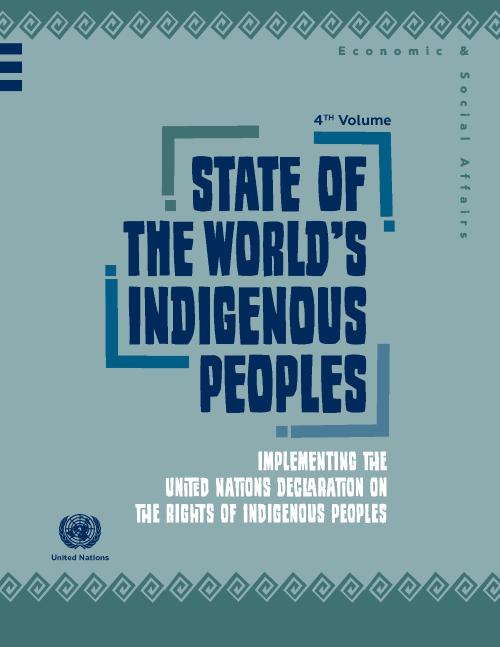
The United Nations Declaration on the Rights of Indigenous Peoples (UNDRIP) has been in place for more than a decade. Has it made a difference? What kind of impact has it had on the survival, dignity and well-being of indigenous peoples. How has it been used? What can be learned from the many ways in which it has been applied and from the obstacles encountered? What gaps and challenges still exist that may be preventing the full implementation of the Declaration? What is the way forward to realize the full potential and promise of the Declaration? These are the questions this publication seeks to explore. This edition of the State of the World’s Indigenous Peoples (SOWIP)…
The impacts of climate change and increasing inequality across and within countries are undermining progress on the sustainable development agenda, threatening to reverse many of the gains made over the last decades that have improved people’s lives, warns the 2019 report on the Sustainable Development Goals.
Launched during the UN High-level Political Forum on Sustainable Development, a critical annual stocktaking event, the report, based on the latest available data, remains the cornerstone for measuring progress and identifying gaps in the implementation of all 17 Sustainable Development Goals.
Four years since the adoption of the Sustainable Development Goals --…
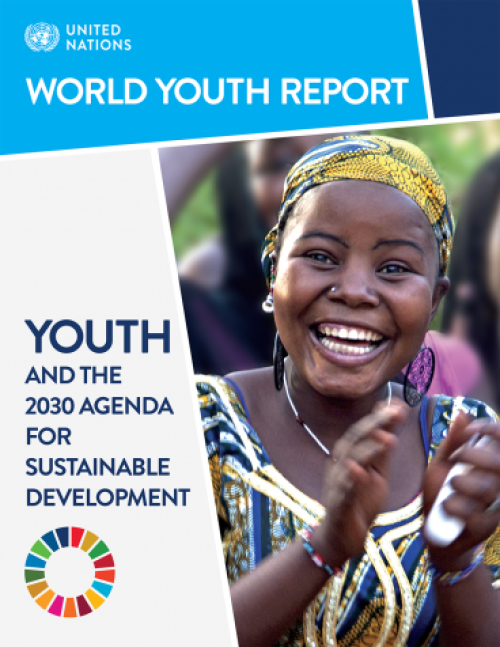
The World Youth Report on “Youth and the 2030 Agenda for Sustainable Development”, prepared by the United Nations Department of Economic and Social Affairs (UN DESA), examines the mutually supportive roles of the new agenda and current youth development efforts. The report provides insight into the role of young people in sustainable development in the context of the implementation of the 2030 Agenda for Sustainable Development and related frameworks, in particular, the Addis Ababa Action Agenda of the Third International Conference on Financing for Development and the World Programme of Action for Youth.
The Report considers the role the 2030 Agenda can play in enhancing youth…
A fast-changing climate, conflict, inequality, persistent pockets of poverty and hunger and rapid urbanization are challenging countries’ efforts to achieve the Sustainable Development Goals (SDGs), according to the UN’s latest SDG progress report.
The Sustainable Development Goals Report 2018 found that conflict and climate change were major contributing factors leading to growing numbers of people facing hunger and forced displacement, as well as curtailing progress towards universal access to basic water and sanitation services.
For the first time in more than a decade, there were approximately 38 million more hungry people in the world, rising from 777 million in…
If the world is to eradicate poverty, address climate change and build peaceful, inclusive societies for all by 2030, key stakeholders, including governments, must drive implementation of the Sustainable Development Goals (SDGs) at a faster rate, according to the The Sustainable Development Goals Report 2017, launched by UN Secretary-General Antonio Guterres.
Using the most recent data available, the annual Sustainable Development Goals Report provides an overview of the world’s implementation efforts to date, highlighting areas of progress and areas where more action needs to be taken to ensure no one is left behind. The Sustainable Development Goals Report 2017report found that…
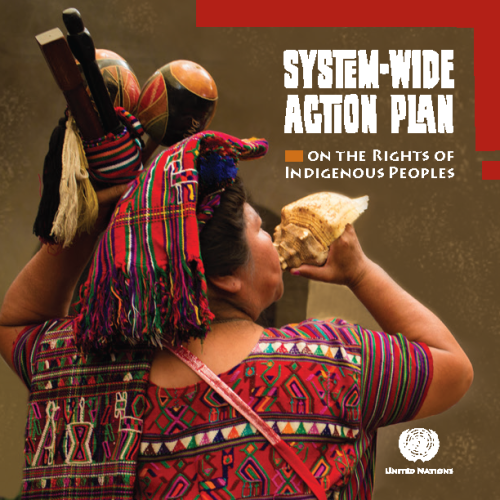
This action plan builds on the momentum and spirit of the 2014 World Conference on Indigenous Peoples and to this end will promote partnership and collaboration between the UN system, civil society organizations, and multilateral bodies such as regional development banks and human rights special procedures and commissions.
This system wide action plan will contribute to the fit for purpose agenda by ensuring stronger linkages between the normative and operational work of the United Nations, increasing coordination and coherence in addressing the rights of indigenous peoples. It calls for strengthened United Nations senior level engagement, encouraging work with Member…

In Africa, as in other regions, persons with disabilities are disproportionately likely to live in poverty and, too often, lack access to education, health care, employment opportunities, housing, social protection systems, justice, cultural expression and participation in political life. The ability of persons with disabilities to participate in society is often frustrated because physical environments, transportation and information and communications systems are not accessible.
In this context, a Toolkit on Disability for Africa has been developed by the United Nations Department of Economic and Social Affairs (UNDESA), Division for Social Policy and Development (DSPD). It is…
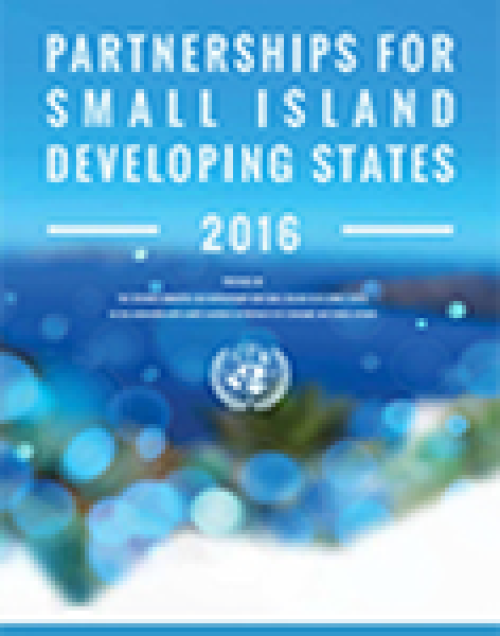
The first annual Global Multi-stakeholder SIDS Partnership Dialogue was held on 22 September 2016 during the 71st session of the General Assembly as a High-level Breakfast Event, focusing on the launch of new partnerships devoted to SIDS, and the announcement of new commitments from existing SIDS partnerships.
The Dialogue is an integral of the SIDS Partnership Framework which was launched by the General Assembly in 2016 as a follow-up to the SIDS Conference, held in Samoa in 2014. The Framework is one of a kind at the United Nations in following up and monitoring progress of voluntary commitments from multi-stakeholder partnerships aimed at driving sustainable development…
Launching the first-ever Sustainable Development Goals report on the new global development agenda adopted in 2015, Secretary-General Ban Ki-moon said that the 15-year undertaking was “off to a good start” but would require all parts of the UN family and its partners to work together.
“We have embarked on a monumental and historic journey,” the Secretary-General told the UN High-level Political Forum on Sustainable Development (HLPF), which opened on 11 July and ended on 20 July 2016, at the UN Headquarters in New York.
“We must all learn, in national governments, in local authorities, in business and civil society, and also at the United Nations, to think differently,” he…
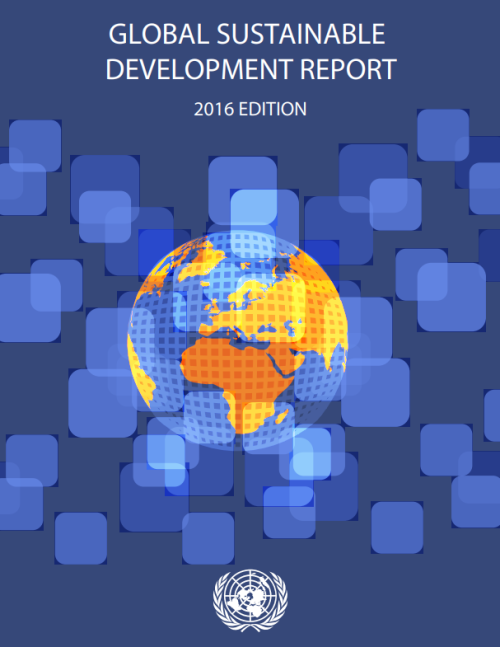
Understanding of the scientific basis for action will be needed to achieve the ambitious and transformative goals of the 2030 Sustainable Development Agenda, according to a new report issued by the United Nations today during the High-level Political Forum on Sustainable Development.
According to the Global Sustainable Development Report 2016, key elements of the 2030 Agenda –such as what it will take to ensure that no one will be left behind — have yet to be thoroughly scientifically researched. The report finds that the new agenda requires asking different questions, many that have not yet been answered by the research.
The report, an assessment of a broad array of…
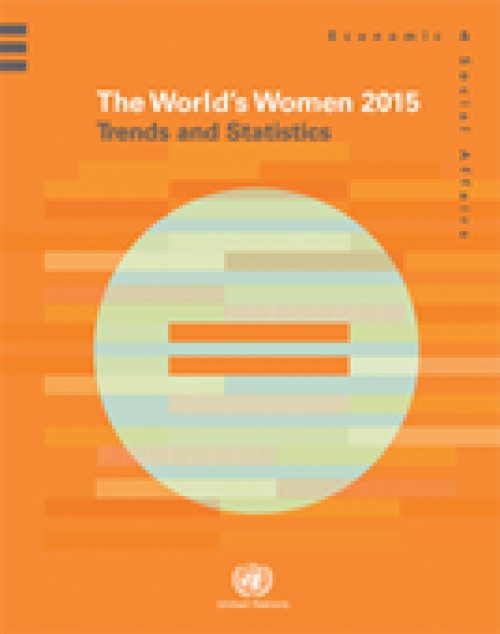
The lives of women and girls around the world have improved in several areas over the last 20 years, according to the new UN DESA report “The World’s Women 2015,” launched today. Coming on the heels of the recently adopted Sustainable Development Goals (SDGs), this new set of data on women and girls worldwide brings into sharp perspective the need for gender equality outlined in Goal 5.
“We cannot achieve our 2030 Agenda for Sustainable Development without full and equal rights for half of the world’s population, in law and in practice,” said UN Secretary-General Ban Ki-moon at a recent event on gender equality organized on the side of the Sustainable Development Summit.…
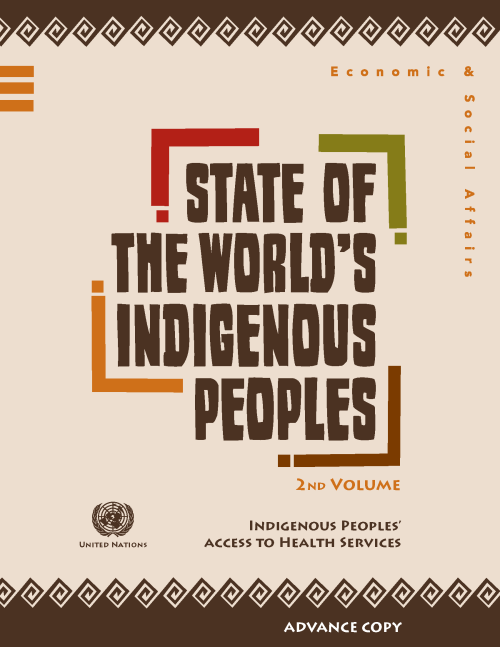
This publication sets out to examine the major challenges for indigenous peoples to obtain adequate access to and utilization of quality health care services. It provides an important background to many of the health issues that indigenous peoples are currently facing. Improving indigenous peoples’ health remains a critical challenge for indigenous peoples, States and the United Nations.
 Welcome to the United Nations
Welcome to the United Nations